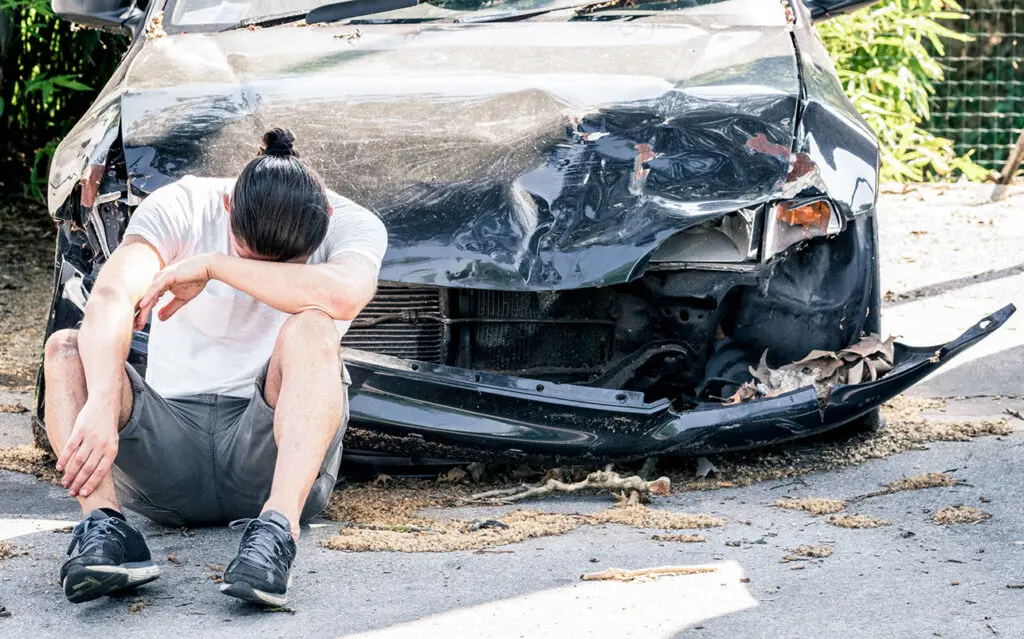Accidents do not wait for a clear head or a calm day. They hit hard, then leave a mess of questions. Who pays the medical bills? What if the other driver's story changes? How long do you have to act? For residents of Carbondale, PA and nearby neighborhoods like Dundaff, Simpson, Mayfield, and Jermyn, the right time to call a personal injury lawyer is usually sooner than people think. Early help protects evidence, your health, and your claim.
Why timing matters in Carbondale, PA
Pennsylvania law sets strict deadlines. Most injury cases have a two-year statute of limitations, but some deadlines are much shorter. Evidence also fades quickly. Camera footage in downtown Carbondale may get overwritten in days. Witnesses forget small details. Cars get repaired, skid marks wash away, and accident scenes change after one rain. A personal injury lawyer can move fast to preserve what proves fault and damages, which often shapes the value of your case.
And there is the insurance factor. Adjusters sound polite, yet they work for the company, not for you. Early statements and forms can limit your recovery if handled poorly. Calling a lawyer before giving a recorded statement helps you avoid traps.
Clear signs it is time to call
If you are on the fence, consider these common moments that call for prompt legal help in Carbondale and across Lackawanna County:
- You have pain beyond minor bruises, or symptoms appear days later.
- Fault is disputed, or the police report feels incomplete or wrong.
- The insurer pressures you to sign a quick release.
- Medical bills, lost wages, or out-of-pocket costs are adding up.
- A commercial vehicle, rideshare, or multi-car crash is involved.
Even a short conversation can clarify your next step. No one should guess alone while the other side builds its defense.

The first 72 hours after an accident
Those first days are critical. Medical care comes first, even if you feel “okay.” Soft tissue injuries and concussions often show up late. In Carbondale, many clients visit urgent care in nearby Dickson City or Geisinger Community Medical Center in Scranton the same day, then follow with their primary doctor. Detailed medical records connect the injury to the crash, which matters for your claim.
Photographs help too. Local roads like Belmont Street, Business Route 6, and Main Street can be busy at peak hours. Photos of traffic, debris, and vehicle positions help recreate the scene. A personal injury lawyer can send preservation letters to businesses with exterior cameras near the crash site, such as gas stations, pharmacies, and corner markets, before footage disappears.
Pennsylvania insurance basics explained simply
Pennsylvania is a choice no-fault state. Many Carbondale drivers carry limited tort or full tort coverage. Here is what that means in plain language:
- Limited tort usually limits pain and suffering claims unless your injury meets a serious injury threshold or a specific exception applies.
- Full tort allows broader claims for pain and suffering regardless of thresholds.
A personal injury lawyer can analyze your policy and the at-fault driver's policy. They can also check for other coverage sources, like umbrella policies or a rideshare company's coverage if an Uber or Lyft was involved. Small details, such as whether the other driver was on the clock, can unlock more insurance.

Common Carbondale cases and why early action helps
Car accidents at busy intersections on Main Street, rear-ends near school zones, parking lot crashes at local shopping centers, and winter weather skids along Route 107 share one theme: facts matter. The earlier a lawyer gathers witness statements and vehicle data, the stronger your leverage with the insurer. In slip and fall cases at supermarkets or apartment complexes, early photos of a spill or broken step, plus incident reports, often make or break a claim.
Truck collisions along the Casey Highway corridor can involve federal rules, electronic logs, and maintenance records. Those records are time-sensitive. Without early legal action, key data can be lost.
Talking to the insurance company
Insurers push for quick statements and low settlements. They might say you do not need a lawyer. That is common. If you speak with them, stick to basics: where, when, and the vehicles involved. Decline to discuss pain levels, prior injuries, or fault until you have legal guidance. A personal injury lawyer can handle all communications so you can focus on healing.
Medical care, liens, and getting bills paid
After a crash in Pennsylvania, your own auto policy's Personal Injury Protection usually pays first for medical bills, regardless of fault. Health insurance can step in after that. Hospitals and insurers may file liens, which are claims to be repaid from your settlement. A personal injury lawyer can confirm coverage order, track bills, and negotiate liens. That often puts more of the settlement in your pocket.

What a personal injury lawyer actually does for you
Clients often say, “I do not want to sue, I just want to be treated fairly.” Most cases settle without a courtroom. Early legal help focuses on building proof and keeping pressure on the insurer. Here is the simple version of the process:
- Investigate fast, preserve evidence, and sort coverage.
- Document injuries with clear medical support.
- Calculate all losses, including lost wages, future care, and pain.
- Negotiate from a position of strength, based on facts, not guesswork.
- If needed, file suit in Lackawanna County Court and keep the case moving.
That steady, organized approach can reduce stress while improving outcomes.
When a quick settlement hurts your claim
A fast check can be tempting. Bills are due. Work wants an answer. But early offers often miss future costs. For example, a back strain might later need physical therapy or injections. A concussion can affect memory at work for months. If you sign a release too soon, you cannot ask for more. A personal injury lawyer reviews medical plans, speaks with your providers, and values the case with the long term in mind.
Timeline and what to expect in Carbondale
Every case is different. Many settle within a few months once treatment stabilizes. Some need more time, especially if surgery or long rehab is expected. Filing a lawsuit does not mean trial the next week. It starts the formal exchange of evidence, which can push fair settlement. In Lackawanna County, practical scheduling and judge availability affect the pace. Your lawyer can set clear expectations and update you at each step.
How fault works in Pennsylvania
Pennsylvania uses modified comparative negligence. If you are more than 50 percent at fault, you cannot recover. If you are 50 percent or less at fault, your recovery is reduced by your percentage. That is why details matter. A lawyer can gather crash reconstruction, vehicle data, and witness statements to fairly assign fault. Small facts, like whether brake lights worked or a turn signal was on, can swing the percentages.
What to bring to an initial call
Bringing information helps a lawyer move quickly. Even a few items can save time and strengthen your case.
- Police report number or incident card.
- Photos of vehicles, scene, and injuries.
- Names of witnesses and insurance information for all drivers.
- Health insurance card and auto policy declarations page.
- Medical visit summaries and work notes for missed time.
If you do not have all of this, do not wait. A lawyer can help gather what is missing.
Local touchpoints that help your case
Carbondale is a close community. That helps with witness contacts and scene checks. Nearby clinics, imaging centers, and physical therapists are familiar with injury documentation. Your lawyer can coordinate with local providers, keep records organized, and make sure your treatment plan aligns with your claim. If transportation is an issue, they can discuss options, including telehealth and ride support through your insurer where available.
Red flags that you should call today
Pain that worsens after the weekend. A claims adjuster asking for your full medical history. A citation you disagree with. Confusion about limited tort. A hit-and-run on a side street with only one witness. These are all reasons to speak with a personal injury lawyer in Carbondale, PA now, not later.
Ready to talk with a personal injury lawyer in Carbondale, PA?
A short call can change the course of a case. It can protect your health, your time, and your claim. If you or a loved one were hurt in Carbondale, Simpson, Mayfield, Jermyn, or anywhere in Lackawanna County, reach out to a local personal injury lawyer today. Ask questions. Get clear answers. Then focus on getting better while your legal team handles the rest.
This article provides general information and is not a substitute for legal advice; consult with experienced lawyers for personalized guidance
Attorney Advertising: The information contained on this page does not create an attorney-client relationship nor should any information be considered legal advice as it is intended to provide general information only. Prior case results do not guarantee a similar outcome.
